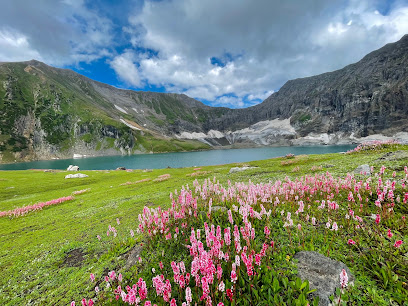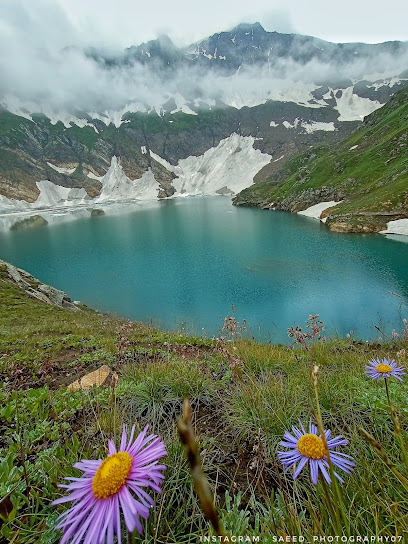
The Enchanting Ratti Gali Lake
Nestled in the heart of Pakistan's Azad Kashmir region, Ratti Gali Lake is a hidden gem that mesmerizes with its pristine beauty. This alpine glacial lake is surrounded by lush meadows, towering peaks, and cascading waterfalls. The crystal-clear waters of the lake reflect the snowy mountains, creating a breathtaking panorama that feels like a painting come to life. The journey to Ratti Gali Lake is an adventure in itself. Accessible only by a jeep ride from Dowarian followed by a trek, the path takes travelers through dense forests, vibrant wildflowers, and charming local villages. The trek, though challenging, rewards visitors with stunning vistas and an unparalleled sense of tranquility. Ratti Gali Lake is not just a feast for the eyes but also a haven for nature enthusiasts and photographers. The area is rich in wildlife, including rare bird species and colorful butterflies. The serene environment makes it an ideal spot for camping, fishing, and simply unwinding away from the hustle and bustle of city life.
Local tips in Ratti Gali Lake
- Visit between July and September to experience the lake in its full glory when the snow has melted and the wildflowers are in bloom.
- Wear sturdy trekking shoes and be prepared for a challenging hike. The trek is not suitable for beginners or those with mobility issues.
- Carry warm clothing, even in summer, as temperatures can drop significantly, especially at night.
- Hire a local guide for the trek to ensure safety and to enhance your experience with local knowledge and insights.
- Bring your own food and camping gear as there are limited facilities near the lake.
The Enchanting Ratti Gali Lake
Nestled in the heart of Pakistan's Azad Kashmir region, Ratti Gali Lake is a hidden gem that mesmerizes with its pristine beauty. This alpine glacial lake is surrounded by lush meadows, towering peaks, and cascading waterfalls. The crystal-clear waters of the lake reflect the snowy mountains, creating a breathtaking panorama that feels like a painting come to life. The journey to Ratti Gali Lake is an adventure in itself. Accessible only by a jeep ride from Dowarian followed by a trek, the path takes travelers through dense forests, vibrant wildflowers, and charming local villages. The trek, though challenging, rewards visitors with stunning vistas and an unparalleled sense of tranquility. Ratti Gali Lake is not just a feast for the eyes but also a haven for nature enthusiasts and photographers. The area is rich in wildlife, including rare bird species and colorful butterflies. The serene environment makes it an ideal spot for camping, fishing, and simply unwinding away from the hustle and bustle of city life.
When is the best time to go to Ratti Gali Lake?
Iconic landmarks you can’t miss
Unmissable attractions to see
Kundal Shahi Waterfall
Explore the enchanting Kundal Shahi Waterfall in Neelum Valley, a breathtaking natural wonder perfect for adventure seekers and nature lovers.
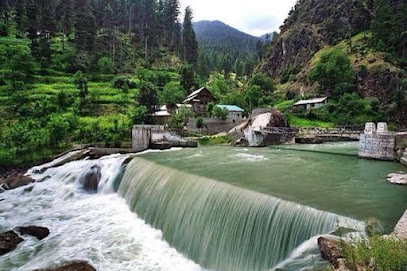
Neelum Valley
Explore Neelum Valley, Pakistan's stunning destination of lush landscapes, serene lakes, and vibrant culture, perfect for nature lovers and adventure seekers.
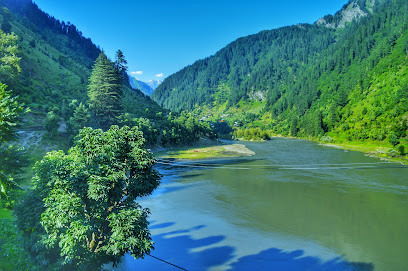
Neelum Valley Kashmir
Explore the breathtaking landscapes and rich culture of Neelum Valley, Kashmir - a true paradise for nature lovers and adventure seekers.
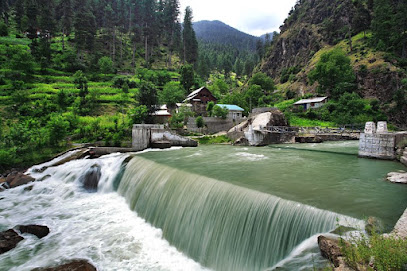
Kel Waterfall
Experience the enchanting beauty of Kel Waterfall in Azad Jammu and Kashmir, where nature's splendor awaits every visitor.
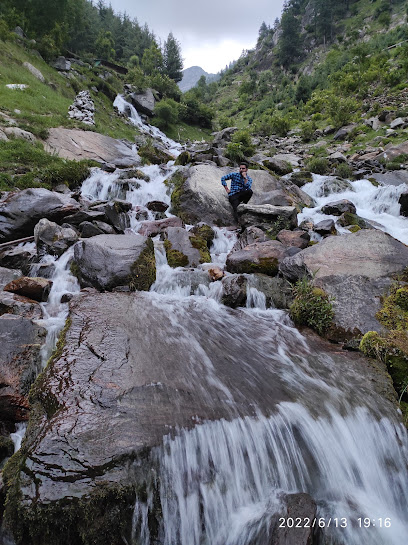
Patlian Lake
Experience the serene beauty of Patlian Lake in Neelum Valley, a hidden gem in Azad Jammu and Kashmir, perfect for nature lovers and tranquility seekers.
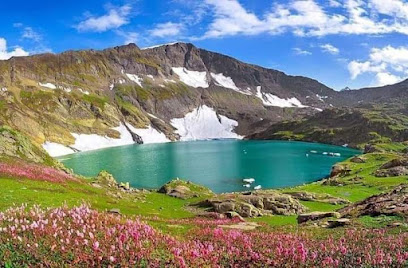
Gattian Lake
Explore the tranquil beauty of Gattian Lake, a stunning public beach surrounded by majestic mountains, perfect for relaxation and adventure.
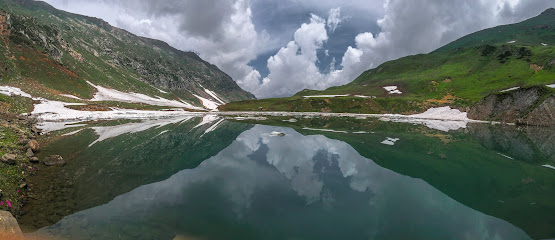
Noori Top
Experience the breathtaking beauty of Noori Top, a serene escape in Sharda, Pakistan, where nature meets adventure amidst stunning landscapes.
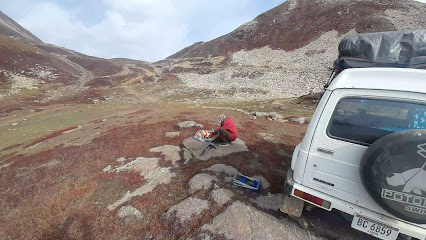
Mendi valley
Explore Mendi Valley, a serene escape in Pakistan, where stunning landscapes and rich culture await every traveler.
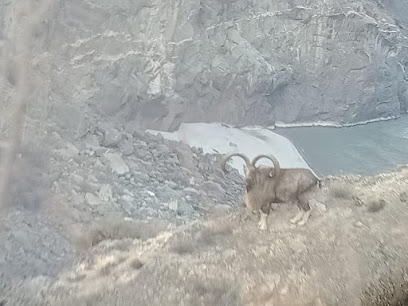
Ghamot National Park Neelum Valley
Experience the breathtaking beauty and tranquility of Ghamot National Park in Neelum Valley, a natural paradise in Azad Jammu and Kashmir.
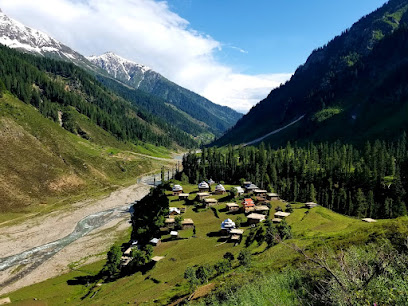
Face Mountain (Couple face mountain, Adam & Eve)
Discover the enchanting beauty of Face Mountain, a breathtaking natural wonder in Neelum Valley, Azad Jammu and Kashmir, perfect for adventure seekers.
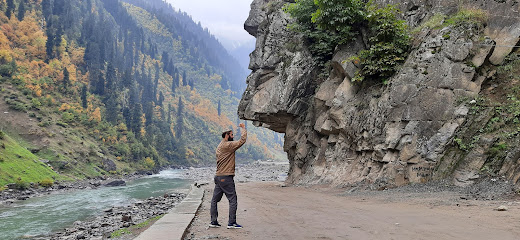
Place to visit in neelum valley
Discover the breathtaking wildlife and stunning landscapes of Neelum Valley, an unforgettable destination for nature lovers and adventure seekers.
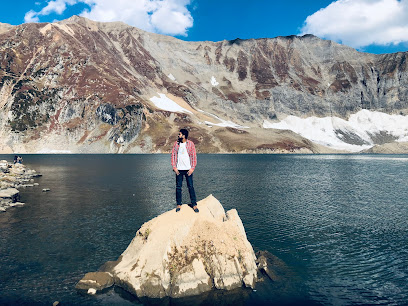
Essential places to dine
Pakistani Restaurant
Experience authentic Pakistani cuisine in Chikkar's inviting atmosphere with delicious dishes that will leave you craving more.
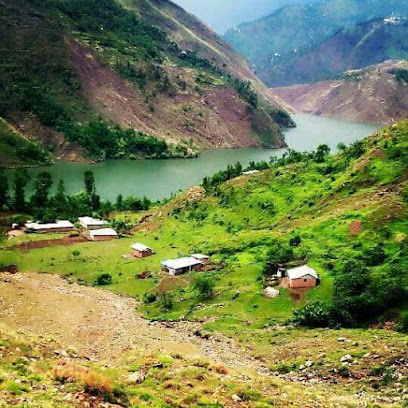
Cafe Kashmir - A project by Tandoori
Experience authentic Kashmiri flavors at Cafe Kashmir in Muzaffarabad - where tradition meets modern dining.
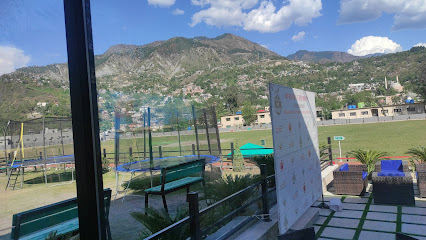
Ratti Gali Resort Dawarian - Khuwaja Shabbir
Discover tranquility at Ratti Gali Resort in Neelum Valley - your gateway to breathtaking landscapes and serene escapes in Azad Jammu and Kashmir.
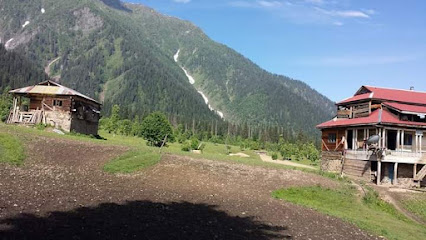
Mian Ji Guest House & Resturant Patikka Muzaffarabad Azad Kashmir-Pakistan (المعروف گوجرانوالہ والے)
Experience family-friendly dining at Mian Ji Guest House & Restaurant in beautiful Azad Kashmir, where delicious cuisine meets stunning natural views.
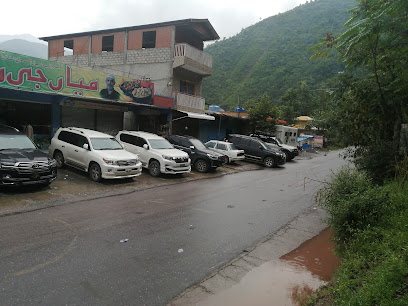
Laal Surkh Baythak
Discover authentic local flavors at Laal Surkh Baythak in Muzaffarabad - where tradition meets taste.
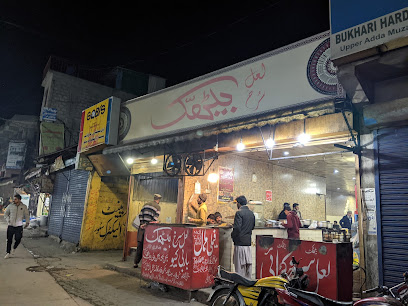
Pakistan Hotel and Fiaz Restaurant
Experience authentic Asian cuisine at Pakistan Hotel and Fiaz Restaurant, where every dish tells a story of flavor and tradition.

Graduate Aalo
Experience authentic Pakistani cuisine at Graduate Aalo in Muzaffarabad - where flavors meet tradition in a welcoming atmosphere.

Markets, malls and hidden boutiques
Ratti Gali Lake
Discover the breathtaking beauty of Ratti Gali Lake, a stunning alpine gem in the Himalayas known for its crystal-clear waters and breathtaking landscapes.
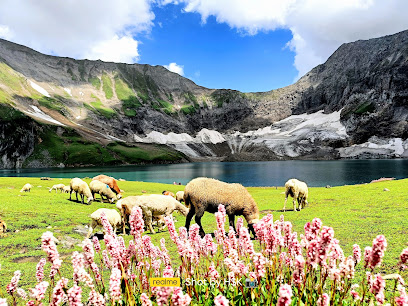
Ratti Gali Barkatia Lake
Explore the stunning beauty of Ratti Gali Barkatia Lake, a tranquil alpine oasis in Jammu and Kashmir, perfect for nature lovers and adventure seekers alike.
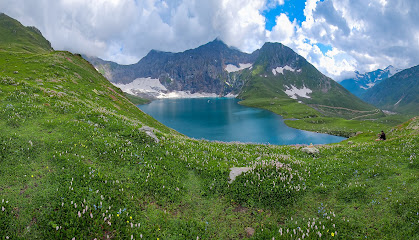
Outdoor Adventures Camp
Explore the serene beauty and adventurous spirit of Neelum Valley at Outdoor Adventures Camp, the perfect playground for nature lovers.
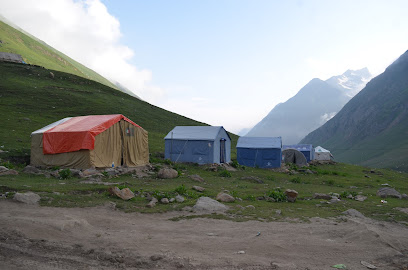
Dubai Shoes House neelum AJK
Explore Dubai Shoes House in Athmuqam, the ultimate shoe store for quality footwear in the heart of Neelum AJK.

Khawaja General Store Dosut
Explore the vibrant local flavors and essential goods at Khawaja General Store Dosut, a charming stop in Neelum Valley for every traveler.
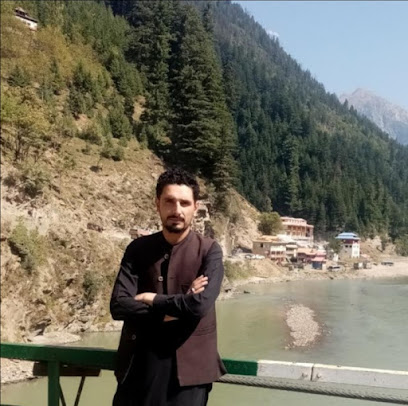
Danyal mobile zone
Explore Danyal Mobile Zone in Dowarian for the latest mobile gadgets and accessories, ensuring you stay connected in Azad Jammu and Kashmir.
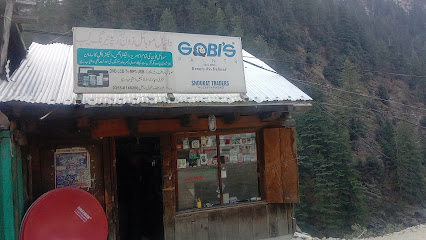
Zahir kiryana store
Discover the local flavors and vibrant atmosphere of Zahir Kiryana Store, a unique grocery shopping experience in the heart of the community.
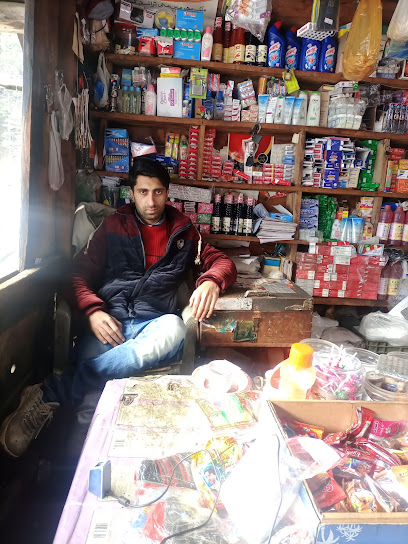
Insaf store
Discover local charm at Insaf Store in Sharda, your go-to destination for essentials and unique souvenirs in Azad Jammu and Kashmir.
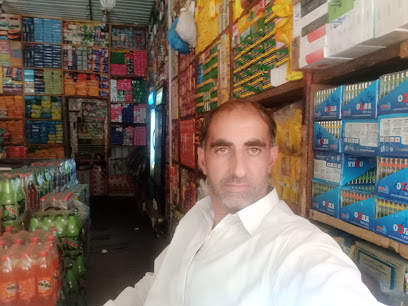
Local fruit shop
Experience the vibrant flavors of Azad Jammu and Kashmir at the Local Fruit Shop, where fresh produce meets breathtaking natural beauty.
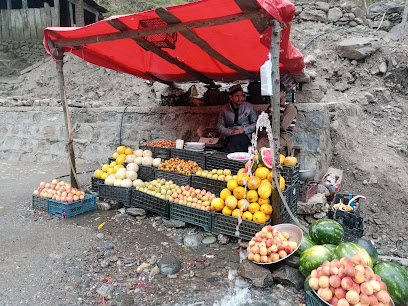
Star shop سٹار شاپ
Explore the charming Star Shop in Neelum Valley, where local goods meet stunning natural beauty in Azad Jammu and Kashmir.
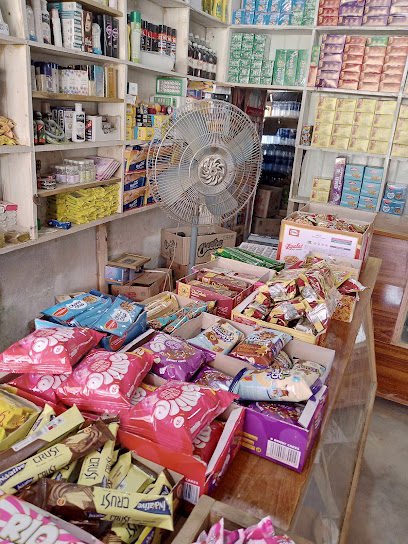
Zain & Shahzaib Store
Discover the charm of local shopping at Zain & Shahzaib Store in Athmuqam, offering a variety of essentials and traditional crafts.

Moon garments
Explore the beauty of local craftsmanship at Moon Garments in Athmuqam, where culture and quality meet in a vibrant shopping experience.

Mir Kiryana Store
Experience authentic Kashmiri shopping at Mir Kiryana Store in Sharda Main Bazar, your go-to for local essentials and delicacies.
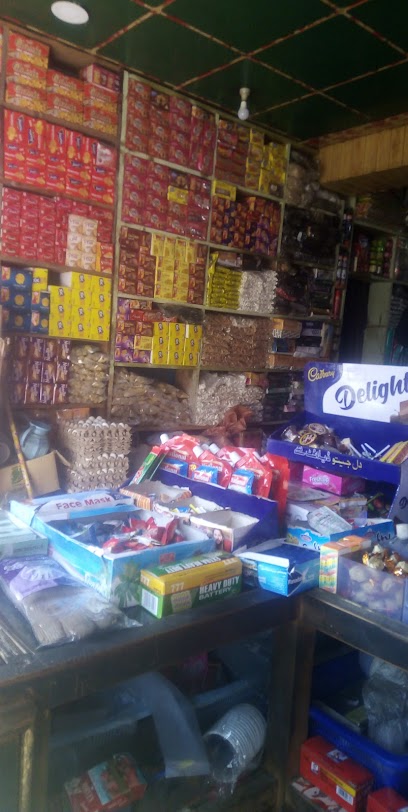
Noor ul Islaam karyana Store
Explore the heart of Batakundi at Noor ul Islaam Karyana Store, where local culture meets everyday convenience in Khyber Pakhtunkhwa.
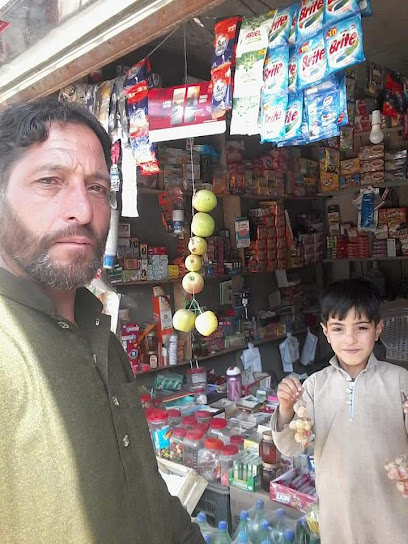
GUJJAR GENERAL STORE
Discover the authentic flavors of the region at Gujjar General Store, a charming bakery on Jalkhad-Sharda Rd, offering freshly baked delights.
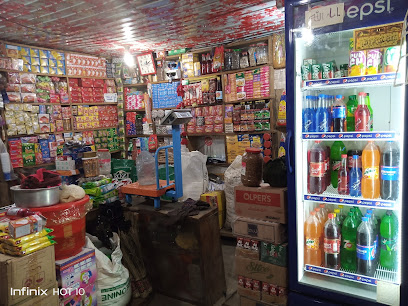
Essential bars & hidden hideouts
Ratti Gali Barkatia Lake
Experience the serene beauty of Ratti Gali Barkatia Lake, a hidden gem in Jammu and Kashmir, perfect for nature lovers and adventure seekers.
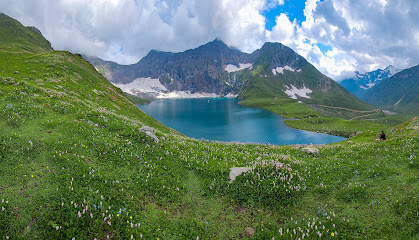
Big Dreams Inn hotel
Experience the serene beauty of Neelum Valley at Big Dreams Inn, where comfort meets nature's grandeur.
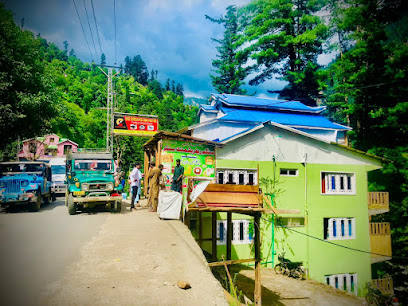
Dera Kashmir Hotel and Restaurant
Experience the rich flavors of Kashmiri cuisine in a stunning setting at Dera Kashmir Hotel and Restaurant in Neelum Valley.
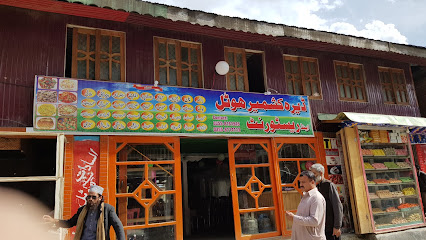
First Food Restaurant & World Best Resort
Discover the perfect blend of local and international cuisine at First Food Restaurant & World Best Resort in beautiful Sharda.
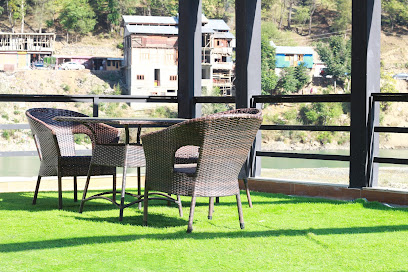
Benazir Palace Tourist inn
Experience the beauty of Neelum Valley at Benazir Palace Tourist Inn, a family-friendly retreat surrounded by nature's wonders.
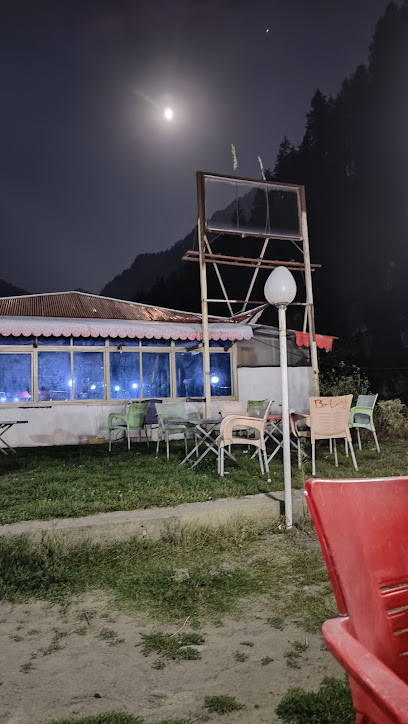
Sharda Heights
Discover the enchanting beauty of Sharda Heights in Neelum Valley, a family-friendly getaway surrounded by nature's wonders.
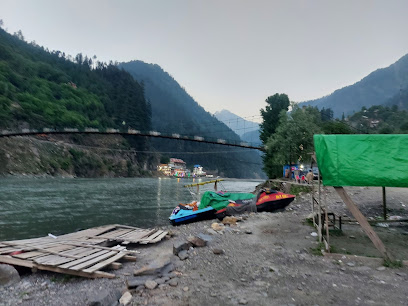
Himalya Guest house
Experience the rich flavors and warm hospitality of Himalya Guest House in the picturesque Neelum Valley, a delightful culinary retreat for travelers.
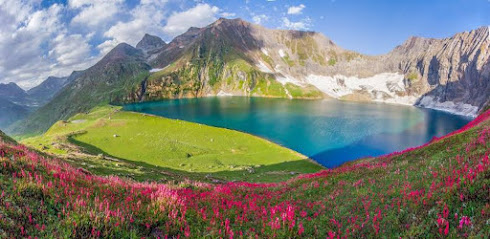
Barakah Restro & Juice Bar
Experience the lively atmosphere and refreshing flavors at Barakah Restro & Juice Bar in Kupwara, where every sip and bite is a delight.

Ali Restaurant
Discover the flavors of Kashmiri cuisine amidst the stunning landscapes of Neelum Valley at Ali Restaurant.
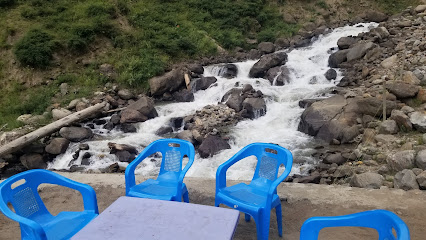
Elysium Hills restaurants
Experience the authentic flavors of Neelum Valley at Elysium Hills restaurants, where local cuisine meets breathtaking landscapes.
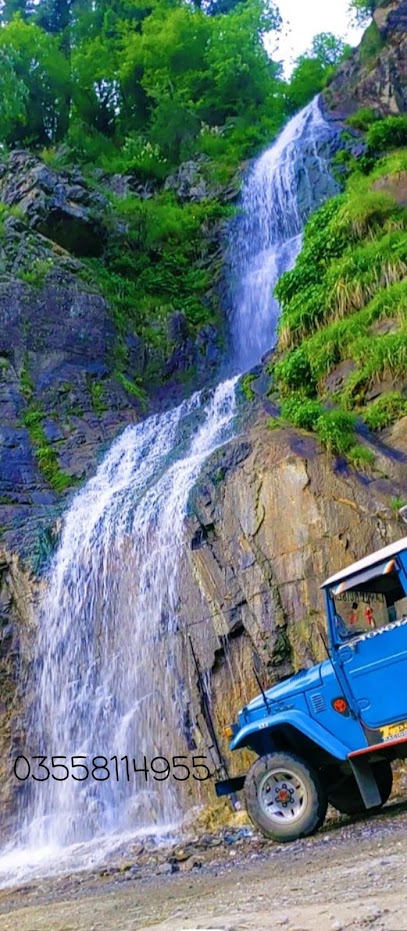
New Butt Karahi - Green Valley tent Village
Discover the flavors of Asia at New Butt Karahi - Green Valley Tent Village, a culinary gem in the stunning Neelum Valley, Azad Jammu and Kashmir.
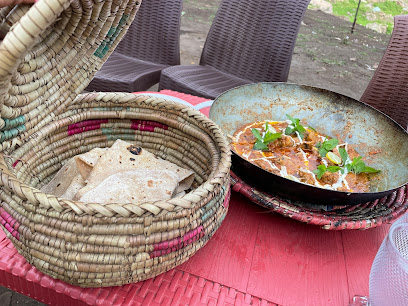
Waseem Mobile and sports
Experience the thrill of live sports in the heart of Jehlum Valley at Waseem Mobile and Sports, a lively bar with a welcoming atmosphere.
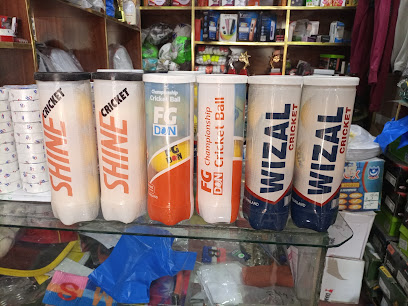
Pak Kashmir Hotel
Discover the authentic flavors of Pakistan at Pak Kashmir Hotel in Neelum Valley, where culinary tradition meets stunning natural beauty.
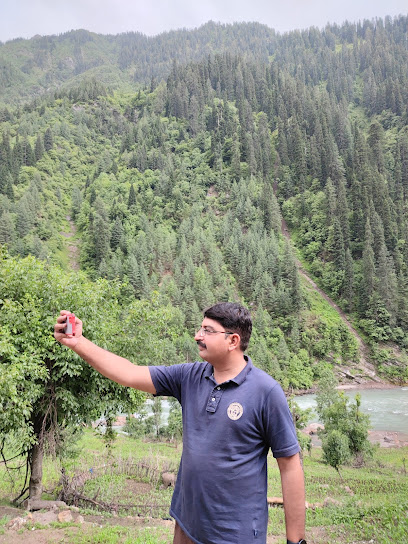
Tahir Ahmad Wani
Experience the vibrant atmosphere of Tahir Ahmad Wani Bar in Handwara, Jammu and Kashmir, where locals and tourists connect over refreshing drinks.

Local Phrases about Ratti Gali Lake
-
- Helloآداب
[Adaab] - Goodbyeخدا حافظ
[Khuda Hafiz] - Yesہاں
[Haan] - Noنہیں
[Nahi] - Please/You're welcomeبراہ کرم
[Barah-e-Karam] - Thank youشکریہ
[Shukriya] - Excuse me/Sorryمعذرت خواہ ہوں
[Mazrat khawah hoon] - How are you?آپ کیسے ہیں؟
[Aap kaise hain?] - Fine. And you?ٹھیک ہوں۔ آپ؟
[Theek hoon. Aap?] - Do you speak English?کیا آپ انگریزی بولتے ہیں؟
[Kya aap angrezi bolte hain?] - I don't understandمجھے سمجھ نہیں آیا
[Mujhe samajh nahi aya]
- Helloآداب
-
- I'd like to see the menu, pleaseبراہ کرم مینو دکھانا
[Barah-e-Karam menu dikhana] - I don't eat meatمیں گوشت نہیں کھاتا
[Main gosht nahi khata] - Cheers!خوش رہو!
[Khush raho!] - I would like to pay, pleaseبراہ کرم ادا کرنا ہے
[Barah-e-Karam ada karna hai]
- I'd like to see the menu, pleaseبراہ کرم مینو دکھانا
-
- Help!مدد!
[Madad!] - Go away!دور ہو جاؤ!
[Door ho jao!] - Call the Police!پولیس کو بلاؤ!
[Police ko bulao!] - Call a doctor!ڈاکٹر کو بلاؤ!
[Doctor ko bulao!] - I'm lostمیں گم ہو گیا ہوں
[Main gum ho gaya hoon] - I'm illمیں بیمار ہوں
[Main beemar hoon]
- Help!مدد!
-
- I'd like to buy...میں خریدنا چاہتا ہوں
[Main khareedna chahta hoon] - I'm just lookingمیں صرف دیکھنا ہوں
[Main sirf dekhna hoon] - How much is it?یہ کتنا ہے؟
[Ye kitna hai?] - That's too expensiveیہ بہت مہنگا ہے
[Ye bohat mehnga hai] - Can you lower the price?کیا آپ قیمت کم کر سکتے ہیں؟
[Kya aap qeemat kam kar sakte hain?]
- I'd like to buy...میں خریدنا چاہتا ہوں
-
- What time is it?وقت کیا ہوا ہے؟
[Waqt kya hua hai?] - It's one o'clockایک بجے ہیں
[Ek baje hain] - Half past (10)دس بج کر نصف
[Das baj kar nisf] - Morningصبح
[Subah] - Afternoonدوپہر
[Dopahar] - Eveningشام
[Shaam] - Yesterdayگزشتہ روز
[Guzishta roz] - Todayآج
[Aaj] - Tomorrowکل
[Kal] - 1ایک
[Ek] - 2دو
[Do] - 3تین
[Teen] - 4چار
[Char] - 5پانچ
[Paanch] - 6چھے
[Chhe] - 7سات
[Saath] - 8آٹھ
[Aath] - 9نو
[Nau] - 10دس
[Das]
- What time is it?وقت کیا ہوا ہے؟
-
- Where's a/the...?یہاں کہاں ہے ...؟
[Yahan kahan hai ...?] - What's the address?پتہ کیا ہے؟
[Pata kya hai?] - Can you show me (on the map)?کیا آپ مجھے دکھا سکتے ہیں (نقشہ پر)؟
[Kya aap mujhe dikhha sakte hain (naqsha par)?] - When's the next (bus)?اگلا (بس) کب ہے؟
[Agla (bus) kab hai?] - A ticket (to ....)ایک ٹکٹ (سے ...)
[Ek ticket (se ...)]
- Where's a/the...?یہاں کہاں ہے ...؟
History of Ratti Gali Lake
-
Ratti Gali Lake, nestled in the Neelum Valley of Azad Kashmir, Pakistan, is believed to have been formed during the last Ice Age. The glacial activity in the region carved this stunning alpine lake, leaving behind a pristine body of water that reflects the surrounding snow-capped peaks. The lake's name is derived from the Urdu word 'Ratti,' which means 'red,' possibly alluding to the reddish hue of the surrounding alpine flora during certain seasons.
-
The Neelum Valley, home to Ratti Gali Lake, has been inhabited for centuries. Early settlers in the region were primarily nomadic tribes who relied on the valley's lush meadows and abundant water sources for grazing their livestock. These tribes lived in harmony with nature, respecting the sacredness of the lake and the surrounding mountains.
-
During the medieval period, the Neelum Valley, including Ratti Gali Lake, became part of various regional kingdoms and empires. The region saw influences from the Kashmiri, Mughal, and Sikh empires, each leaving a mark on the local culture. The Mughals, in particular, were known for their love of nature and may have frequented the lake, appreciating its serene beauty and the tranquility it offered.
-
In the 19th century, the British Empire expanded its reach into the Indian subcontinent, including the region around Ratti Gali Lake. British explorers and cartographers documented the lake and its surroundings, bringing it to the attention of the wider world. The colonial period also saw the introduction of new flora and fauna to the region, some of which can still be found around the lake today.
-
After the partition of British India in 1947, Ratti Gali Lake became part of Pakistan. The region saw a renewed interest in its natural beauty, attracting local tourists, trekkers, and nature enthusiasts. The Pakistani government and local communities have since worked to preserve the pristine environment of the lake while promoting sustainable tourism.
-
In recent years, Ratti Gali Lake has become a popular destination for both domestic and international travelers. The lake's crystal-clear waters, surrounded by lush green meadows and towering peaks, offer a breathtaking sight. Modern infrastructure developments, such as improved roads and accommodations, have made the lake more accessible while efforts continue to ensure that tourism does not harm the delicate ecosystem.
Ratti Gali Lake Essentials
-
Ratti Gali Lake is situated in the Neelum Valley of Azad Kashmir, Pakistan. The nearest major city is Muzaffarabad, which is approximately 120 kilometers away. To reach Ratti Gali Lake, you can take a domestic flight to Islamabad International Airport and then travel by road. From Islamabad, you can hire a taxi or rent a car to Muzaffarabad. From Muzaffarabad, a 4x4 vehicle is recommended to navigate the rugged terrain to reach the lake. The journey from Muzaffarabad to the base camp at Dowarian takes around 4-5 hours, followed by a 2-3 hour trek to the lake.
-
Local transportation options include 4x4 jeeps and private taxis, which can be hired from Muzaffarabad or Dowarian to the Ratti Gali Lake base camp. Public transport is limited, and it is advisable to arrange for a private vehicle. The terrain is challenging, and a 4x4 vehicle is necessary for the final stretch of the journey. For the trek from the base camp to the lake, ensure you have appropriate hiking gear and possibly hire a local guide.
-
The official currency in Pakistan is the Pakistani Rupee (PKR). Credit cards are accepted in major cities and some hotels, but in remote areas like Neelum Valley, cash is essential. ATMs are available in Muzaffarabad, but it is advisable to withdraw sufficient cash before heading to remote areas. Local vendors and transport services generally prefer cash payments.
-
Ratti Gali Lake and the surrounding areas are generally safe for tourists. However, it is wise to take standard precautions such as not venturing out alone at night and keeping personal belongings secure. Avoid isolated areas and always stay on marked trails during treks. Be cautious of weather conditions as the terrain can become hazardous during rain or snow. There are no specific high-crime areas targeting tourists, but it's always best to stay vigilant.
-
In case of an emergency, dial 1122 for immediate assistance. The nearest medical facilities are located in Muzaffarabad, which is several hours away from Ratti Gali Lake. It is highly recommended to have travel insurance that covers medical emergencies and evacuation. Carry a basic first aid kit and familiarize yourself with the local emergency contacts. For minor issues, local pharmacies in Muzaffarabad can provide over-the-counter medications.
-
Fashion: Do dress modestly, especially in rural areas. Avoid wearing revealing clothing. Religion: Do respect local customs and traditions. Always remove your shoes when entering mosques and other religious sites. Public Transport: Do be respectful and give up your seat to elderly passengers. Don't eat or drink on public transport. Greetings: Do greet people with a handshake. In rural areas, a slight nod of the head is also a sign of respect. Eating & Drinking: Do try local delicacies and accept food offerings graciously. Don't refuse hospitality, as it is considered impolite.
-
To experience Ratti Gali Lake like a local, engage with the local guides and porters who can share stories about the region's history and culture. Visit the nearby villages to buy traditional handicrafts and local produce. The best time to visit the lake is during the summer months (June to September) when the weather is pleasant and the trekking routes are accessible. Don't miss the opportunity to camp by the lake for a truly immersive experience.
Nearby Cities to Ratti Gali Lake
-
Things To Do in Kaghan
-
Things To Do in Abbottabad
-
Things To Do in Murree
-
Things To Do in Gilgit
-
Things To Do in Skardu
-
Things To Do in Swat
-
Things To Do in Islamabad
-
Things To Do in Rawalpindi
-
Things To Do in Chitral
-
Things To Do in Jammu
-
Things To Do in Peshawar
-
Things To Do in Sialkot
-
Things To Do in Gujranwala
-
Things To Do in Leh
-
Things To Do in Amritsar






